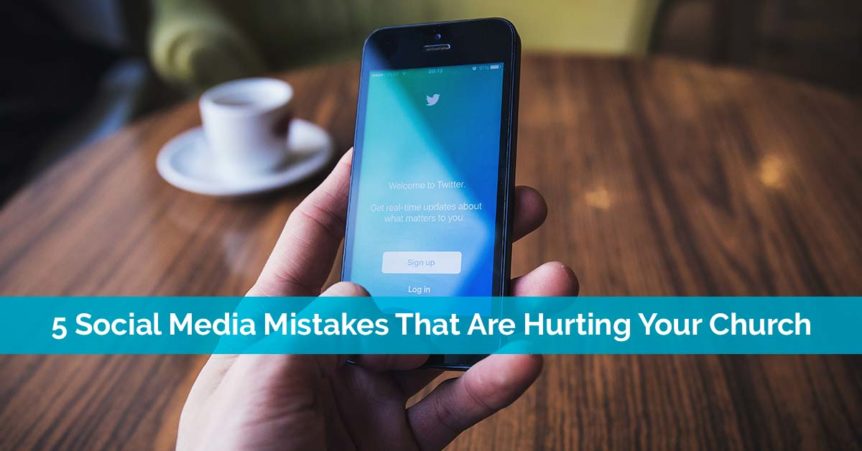Social media is one of the best ways to reach new members and engage current members, especially younger ones.
However, social media mistakes could turn this highly effective tool against your church. The last thing you want is to drive people away.
Luckily, these common mistakes are easy to avoid. With a little planning, Facebook, Twitter and all the others could become your church’s online community.
1. Posting And Forgetting
The top reason people use social media is to stay in contact with friends. When members and potential members find your church on social media, they expect to experience some type of engagement. One of the worst social media mistakes you can make is to just post something and forget it.
Encourage members to interact with your social media channels. Set aside specific times to respond to comments and questions. In fact, 24.7% of people unfollow brands on social media because no one responds to their comments or questions.
2. Talking About Volatile Topics
Volatile topics, such as politics and personal opinions, aren’t exactly the right type of content for a church’s social media account. Your church should feel like a welcoming presence in a chaotic world and this includes your online presence. When something’s going on in the world that you don’t like, post relevant scripture or an encouraging word.
Despite the temptation to be vocal about sensitive subjects, hold back. It’s also a good idea to ensure anyone who manages your social media channels know your church’s stance on what’s appropriate and what’s not.
3. Doing Nothing But Preaching
Simply preaching at social media followers is one of the worst social media mistakes your church can make. Think of the types of pages you follow on Facebook. They post engaging content that makes you think, laugh or feel better. Getting too preachy may actually turn people away.
People don’t want to interact with social media channels that only tell them what they’re doing wrong in life. With so much bullying and judgement going on, they need an uplifting place that helps guide them in their faith. It’s sometimes a hard line to walk, but it makes all the difference between an effective social media strategy and one that hurts your church.
4. Skipping Any Type Of Strategy
Not having a strategy is probably the most common of all social media mistakes. This doesn’t just apply to churches either. Smart Insights provides a list of reasons why you need a strategy and why it applies to businesses, the advice still holds true for churches. Without a clear strategy, it’s difficult to truly engage anyone on social media.
Just think if a church pastor didn’t prepare for Sunday services at all. They didn’t have a sermon or purpose for that week. It would difficult for the pastor to guide members and odds are, members would likely start leaving for another more organized church.
Your church’s social media strategy should include things, such as:
- Goals – engaging current members, reaching out to the unchurched, etc.
- How often you’ll post and on which networks
- What type of posts are appropriate
- How to deal with negative feedback
- What social media management tools to use
- Who’ll manage the accounts and who has access to post
- Social media etiquette for your church
A comprehensive strategy is vital to making social media work for your church.
5. Being Everywhere Or Nowhere
While you might want to reach everyone possible, it’s just not realistic to try to be on every social media network at once. At the same time, picking just one or none at all isn’t going to help your church either. Large churches are likely on numerous social media networks, but remember, they have dedicated social media teams to handle posting and responding.
For smaller churches, limit how many social networks you’re on, but strive for at least two. Take a poll at your church to see which networks are the most popular. At the time of writing, Facebook and YouTube are the top two social networks, with Instagram and Twitter coming in third and fourth.
Pick a couple to start with and adjust your strategy to meet that network’s audience. For instance, you might post three or four times a day on Facebook, but if you choose to use YouTube, you might only post once a week.
Want to avoid even more social media mistakes? Make sure you’ve got a church website to complement your social media strategy.

